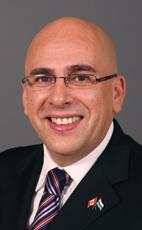Mr. Speaker, as the Liberal critic for aboriginal affairs, I have been hearing from many of the affected groups and organizations concerning the end of funding for the Aboriginal Healing Foundation. However, probably most important, we are hearing from individuals whose lives have been negatively impacted by the end of the funding, individuals who were reaching out and finding help, individuals who were on their healing journey.
In Labrador, despite being excluded from the residential schools agreement, several organizations in my riding had obtained Aboriginal Healing Foundation funding for work with former students. Those organizations were the Nunatsiavut government, which represents the self-governing Inuit of Labrador, and the Labrador Legal Services, which works with members of all three aboriginal cultures in Labrador, including the Innu, Métis and Inuit.
Both organizations operated important healing programs with this funding. People were telling their stories in a supportive environment. The programs were working, but it was only the tip of the iceberg. The programs were culturally appropriate. They were community driven. There were programs on the land. There were programs in the Labrador Correctional Centre. Again, the programs were working.
Throughout the country, projects funded by the Aboriginal Healing Foundation have worked with residential school survivors and aboriginal communities to move beyond the residential school legacy to provide healing and reconciliation at the individual and community levels.
Organizations and individuals across Canada have been very vocal in expressing to me and all members of Parliament their disappointment that the recent federal budget did not provide for a continuation of funding. I share that disappointment, especially given that all Canadians and the aboriginal people who have been served through the foundation have received excellent value for money.
The government's December 2009 evaluation report, which was submitted to Indian and Northern Affairs, found:
—AHF healing programs at the community level are effective in facilitating healing at the individual level, and are beginning to show healing at the family and community level.
The report went on to recommend a continuation of Aboriginal Healing Foundation funding.
The Aboriginal Healing Foundation was an aboriginal organization run by aboriginal people for aboriginal people. The cuts to AHF undermine the residential schools apology and the work of the Truth and Reconciliation Commission and display an ongoing lack of understanding on the part of the Conservative government. We ask the Conservative government that the funding to the Aboriginal Healing Foundation be restored.

